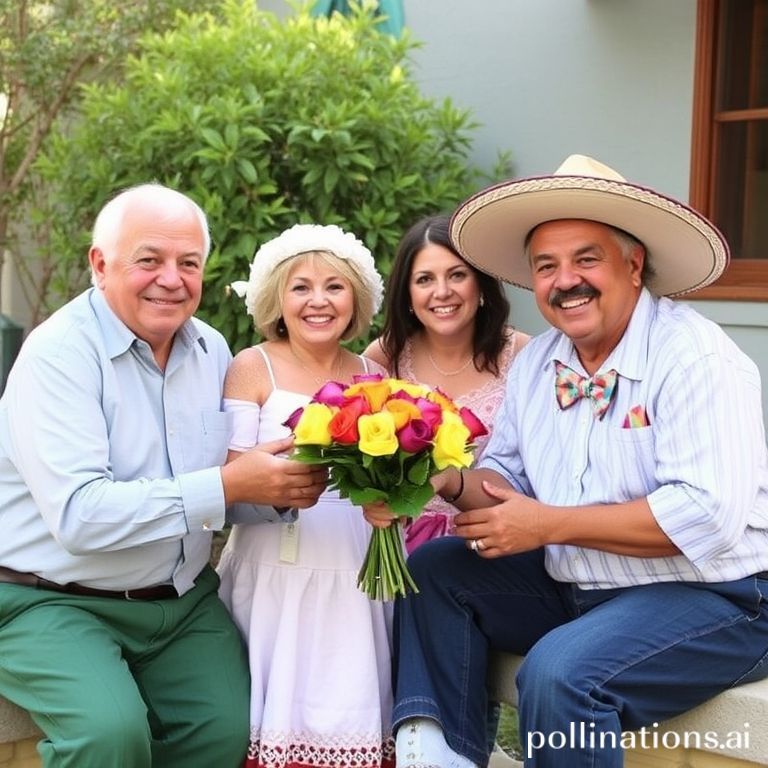Mexico, a land brimming with vibrant culture and rich history, holds family at its core. More than just a social unit, the family is a sanctuary of love, support, and tradition. These traditions, passed down through generations, weave a tapestry of unique customs that define Mexican identity and strengthen familial bonds. From lively celebrations to heartfelt rituals, Mexican family traditions offer a glimpse into the soul of this captivating country.
Whether you’re planning a trip to Mexico, looking to connect with your own heritage, or simply curious about different cultures, understanding these traditions will deepen your appreciation for the warmth and resilience of Mexican families. Let’s explore some of the most cherished Mexican family traditions that you’ll undoubtedly love.
Celebrating Life’s Milestones
Mexicans celebrate life’s milestones with fervor and joy, often involving the entire extended family. These celebrations are not just parties; they are a reaffirmation of family ties and a sharing of blessings.
Quinceañera: A Girl’s Coming-of-Age
Perhaps one of the most iconic Mexican traditions is the Quinceañera, a celebration of a girl’s 15th birthday. This marks her transition from childhood to womanhood and is celebrated with a religious ceremony followed by a lavish party. The Quinceañera typically wears a beautiful gown, similar to a wedding dress, and is accompanied by damas (maids of honor) and chambelanes (chamberlains). The party includes traditional dances, music, and a feast for family and friends. It’s a moment of pride and joy for the entire family, signifying the young woman’s entrance into a new phase of life.
Baptisms and First Communions
Religious sacraments like baptisms and first communions are also significant milestones in a child’s life and are celebrated with large family gatherings. Godparents (padrinos) play a vital role, promising to support the child’s religious upbringing. These events often involve a church service followed by a festive meal and gathering at the family home or a rented venue. The child receives gifts and blessings from loved ones, solidifying their place within the family and the community.
Day of the Dead (Día de Muertos)
While often misunderstood as a morbid holiday, Día de Muertos is a beautiful and deeply meaningful celebration of life and remembrance. It’s a time when families honor their deceased loved ones by creating altars (ofrendas) adorned with flowers (especially marigolds), candles, photographs, favorite foods, and personal belongings of the departed. Families gather at cemeteries to clean and decorate gravesites, sharing stories and memories of those who have passed on. This tradition emphasizes the continuity of family bonds, even beyond death, and offers a comforting way to remember and celebrate the lives of loved ones.
Family Meals: A Time for Connection
In Mexican culture, meals are more than just sustenance; they are opportunities for families to connect, share stories, and strengthen their bonds. Sunday dinners are particularly important, often bringing together extended family members for a large, leisurely meal. These gatherings are filled with laughter, conversation, and delicious homemade food. Recipes are passed down through generations, preserving culinary traditions and creating a sense of shared heritage. Mealtimes are a sacred space where families can reconnect and reaffirm their love and support for one another.
Las Posadas: A Christmas Tradition
Las Posadas is a nine-day celebration leading up to Christmas, reenacting Mary and Joseph’s search for shelter in Bethlehem. Each night, families gather and travel from house to house, singing traditional songs and asking for lodging (posada). Eventually, they are welcomed into a designated home, where they celebrate with food, music, and piñatas. This tradition is a beautiful representation of community and hospitality, and it reinforces the spirit of Christmas by emphasizing the importance of family, faith, and generosity.
Importance of Respect for Elders
Respect for elders is a cornerstone of Mexican family values. Older generations are revered for their wisdom, experience, and guidance. Children are taught to address elders with respect and to seek their advice on important matters. Grandparents often play an active role in raising children, passing down traditions, and providing unconditional love and support. This intergenerational connection strengthens family bonds and ensures the continuity of cultural values.
Conclusion
Mexican family traditions offer a captivating glimpse into the heart of a vibrant culture. These customs, steeped in history and meaning, emphasize the importance of love, respect, and community. From celebrating life’s milestones to honoring the deceased, Mexican families find strength and joy in their shared heritage. Understanding these traditions allows us to appreciate the profound connections that bind Mexican families together and the enduring power of cultural identity.
If you enjoyed this article, don’t forget to explore more inspiring stories on Life in Mexico!
IMAGE: A vibrant and heartwarming scene depicting a Mexican family celebrating Día de Muertos. The family, spanning multiple generations, is gathered around a brightly decorated altar (ofrenda) adorned with marigolds, candles, sugar skulls, and photographs of deceased loved ones. The scene is bathed in warm, golden light, creating a sense of love, remembrance, and joyful connection. The style should be realistic and evocative, capturing the rich details of Mexican culture and the emotional depth of the tradition.


